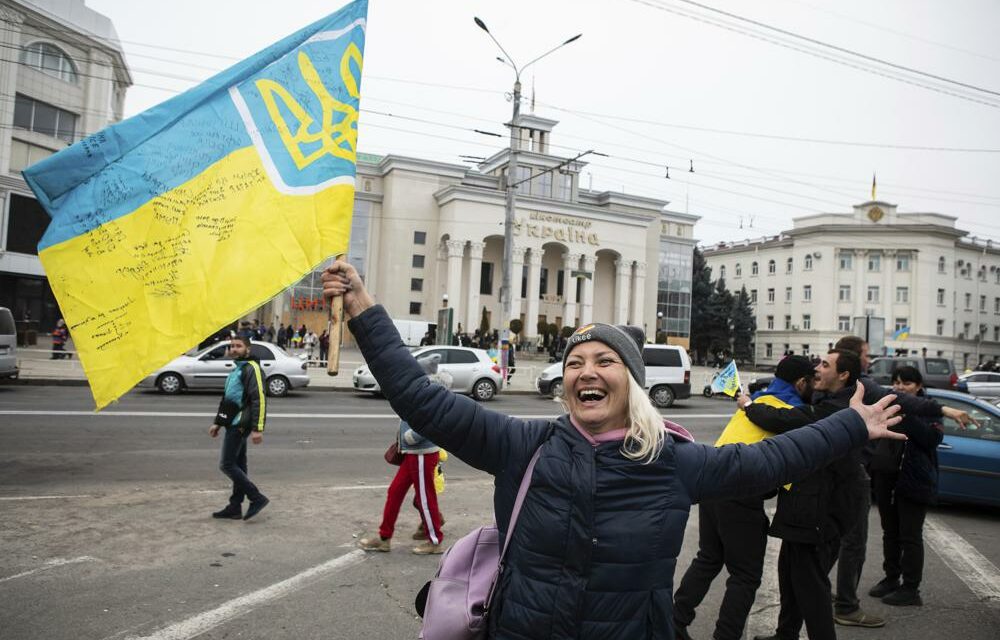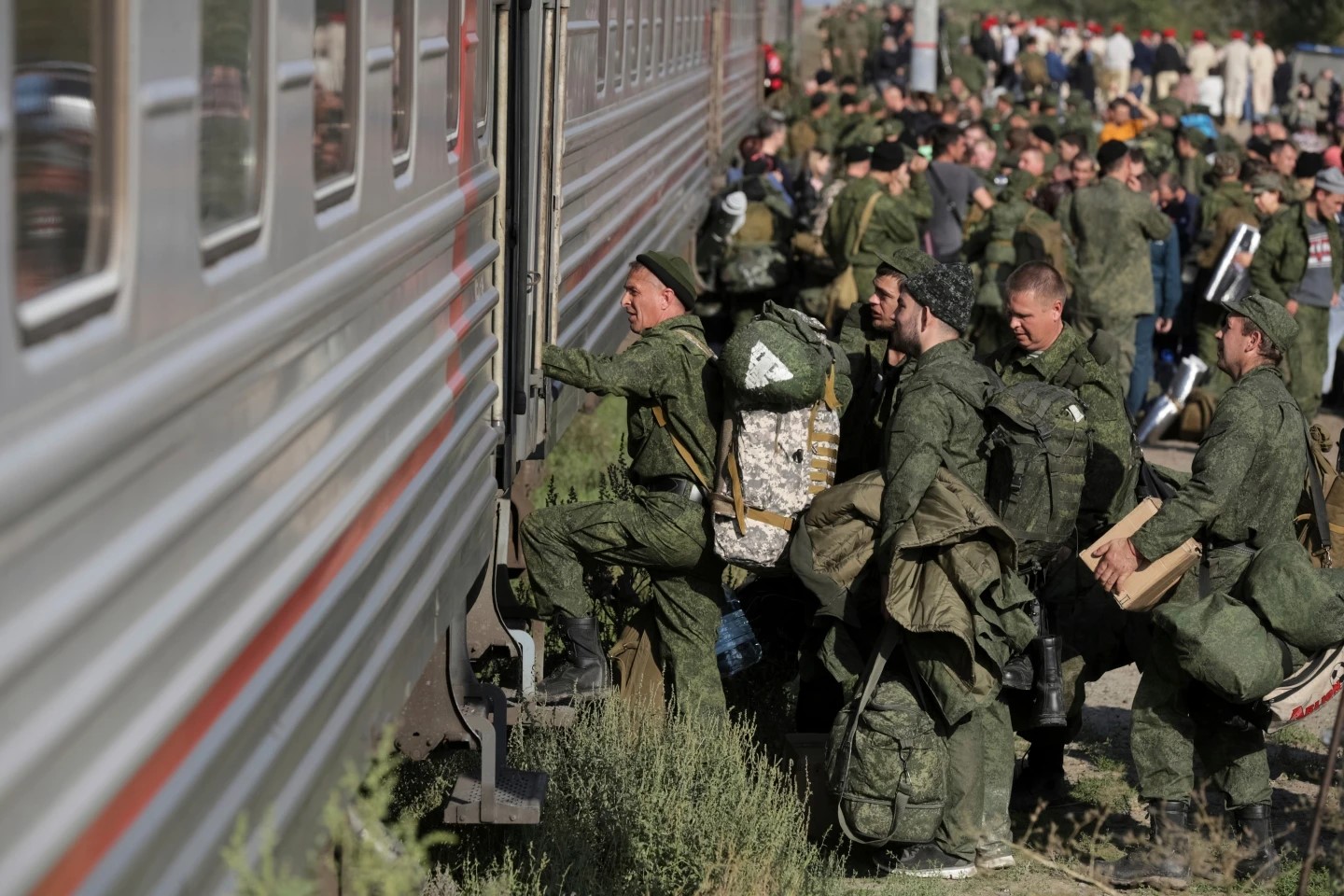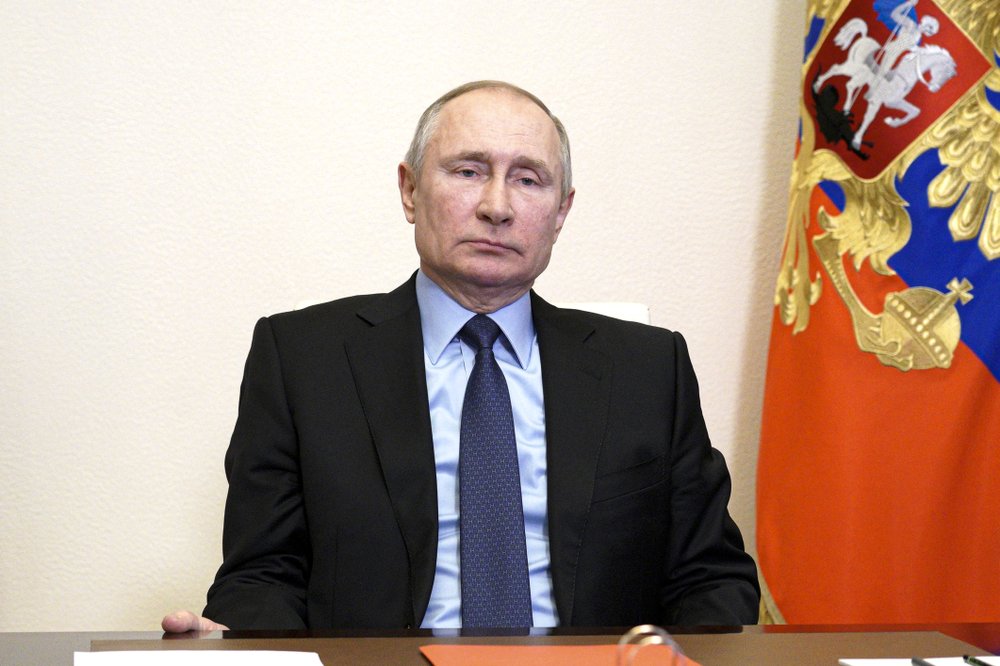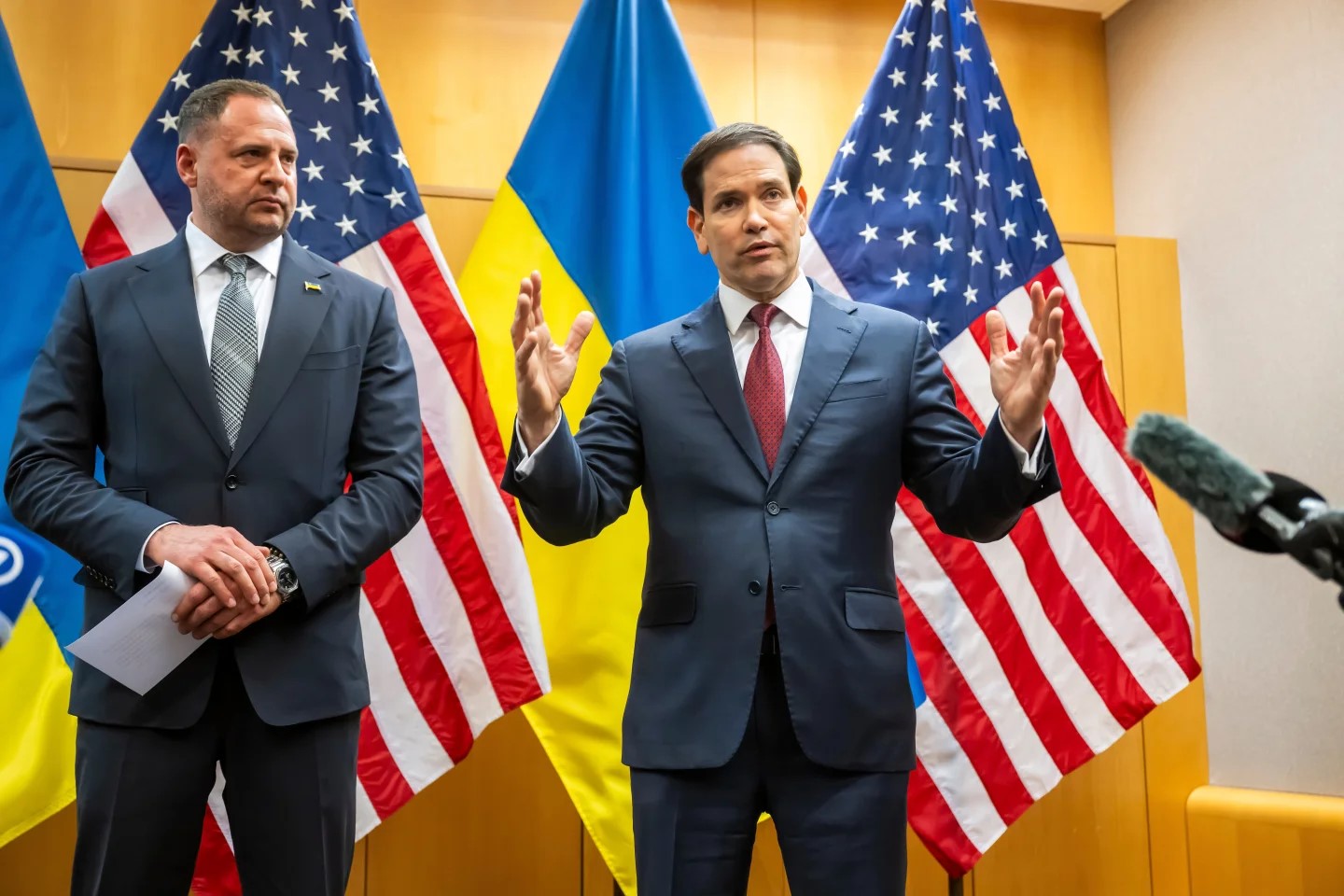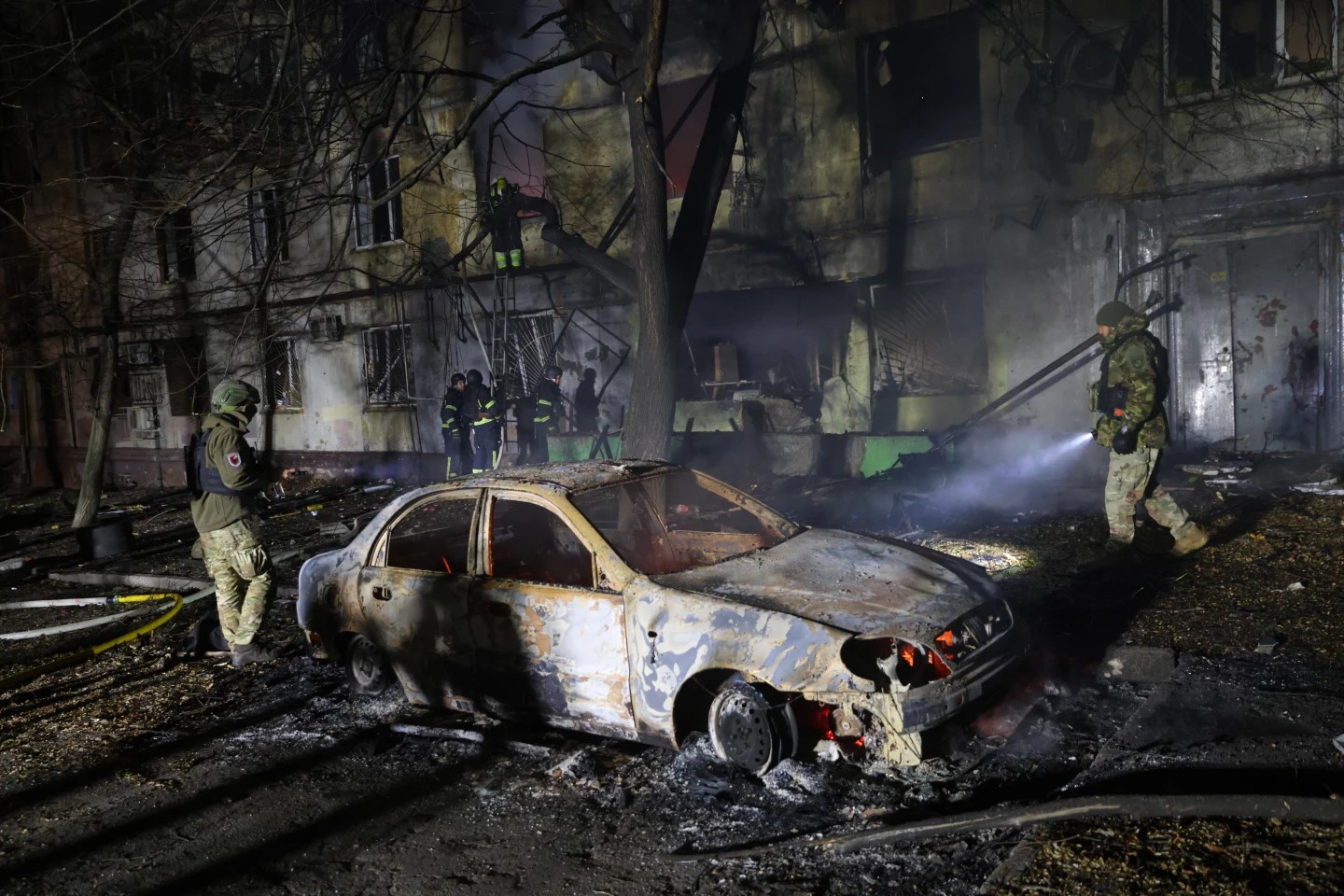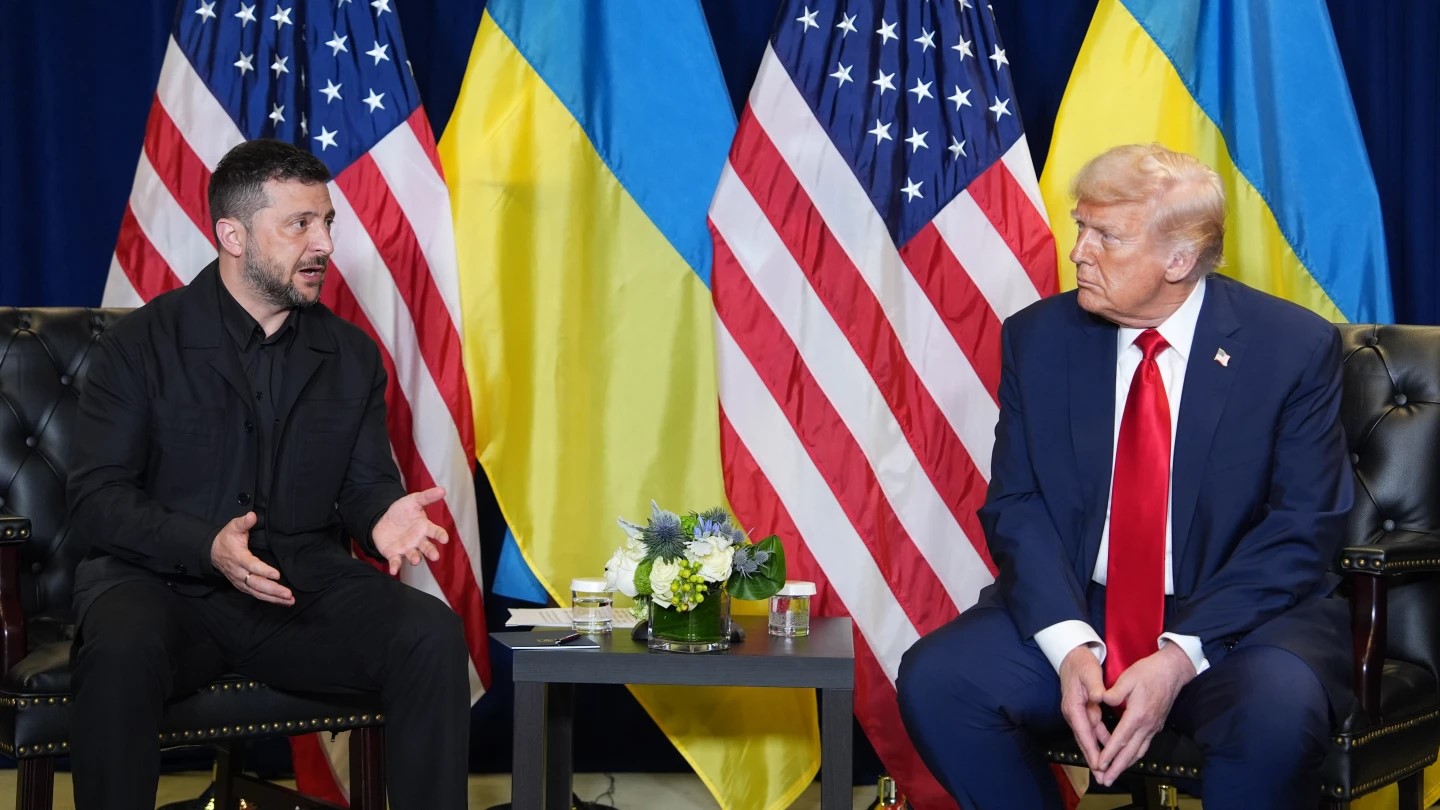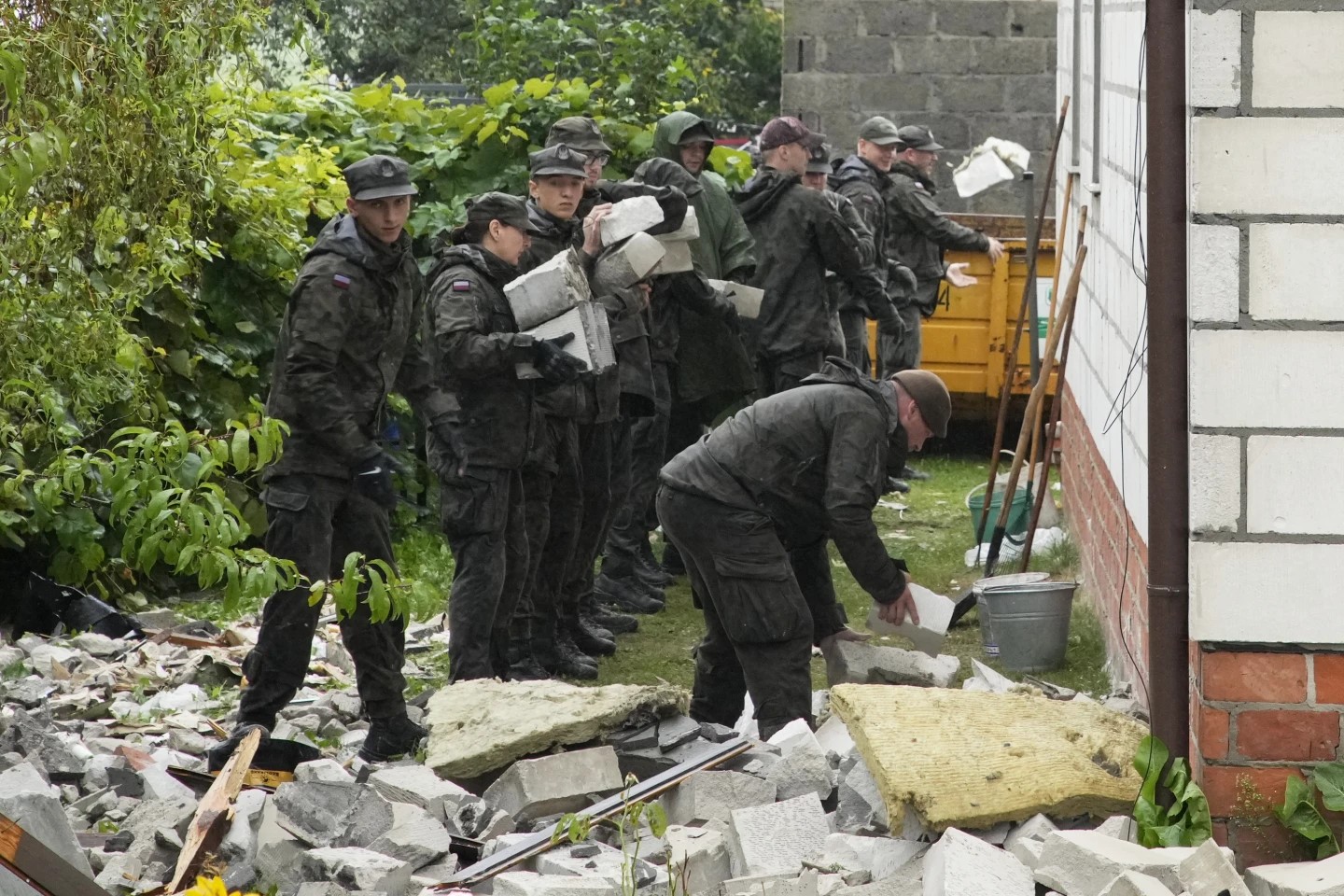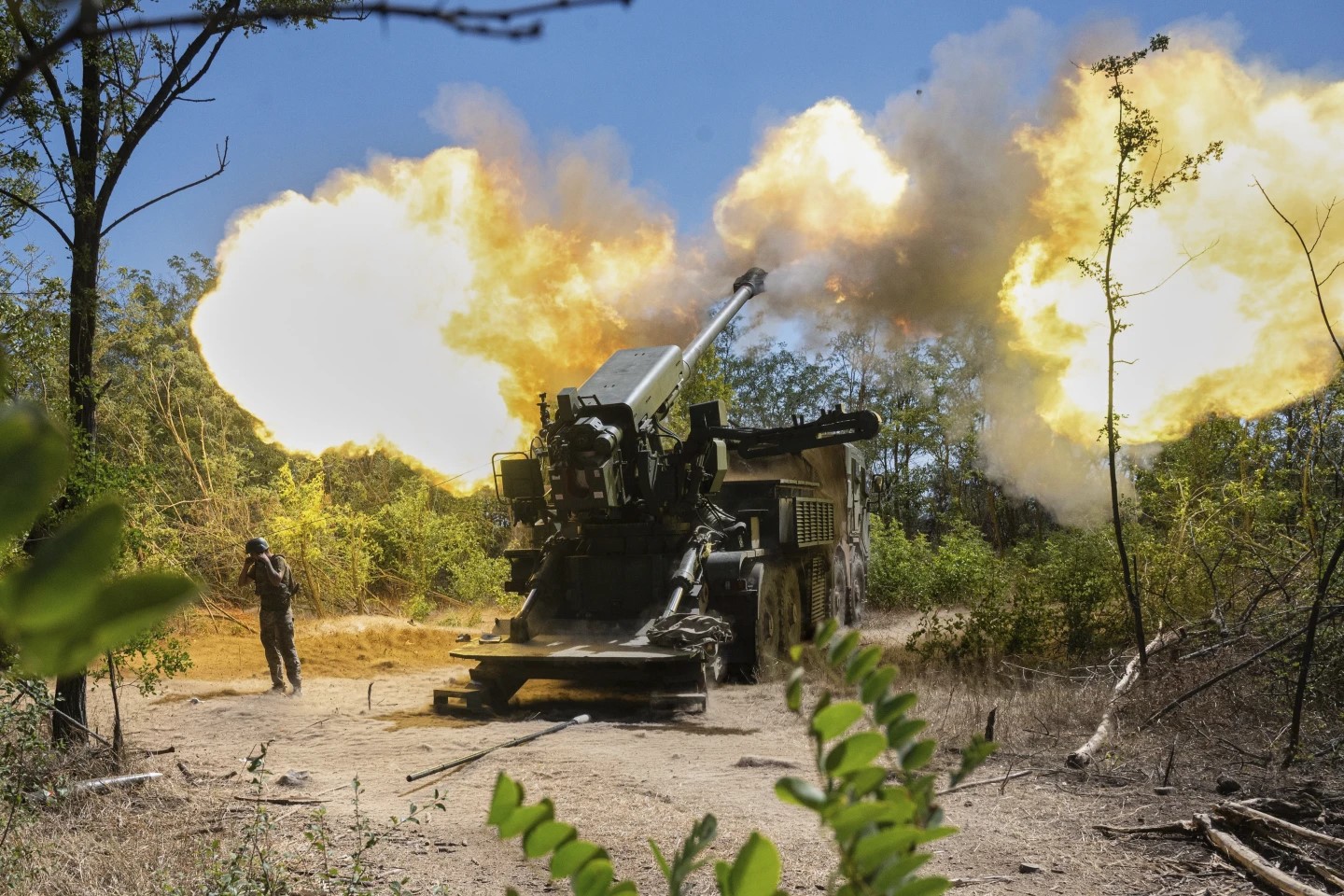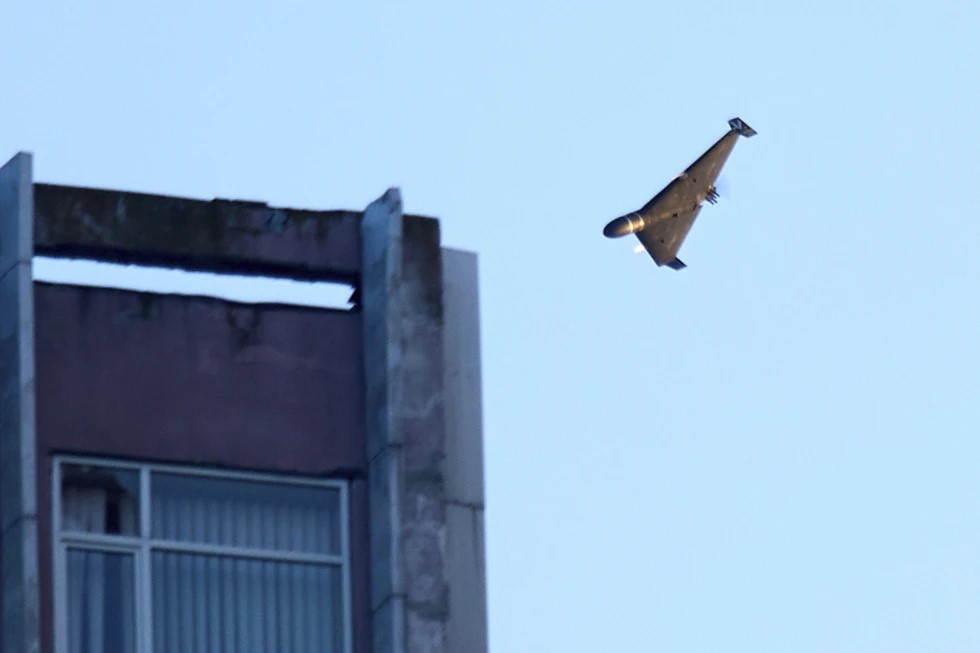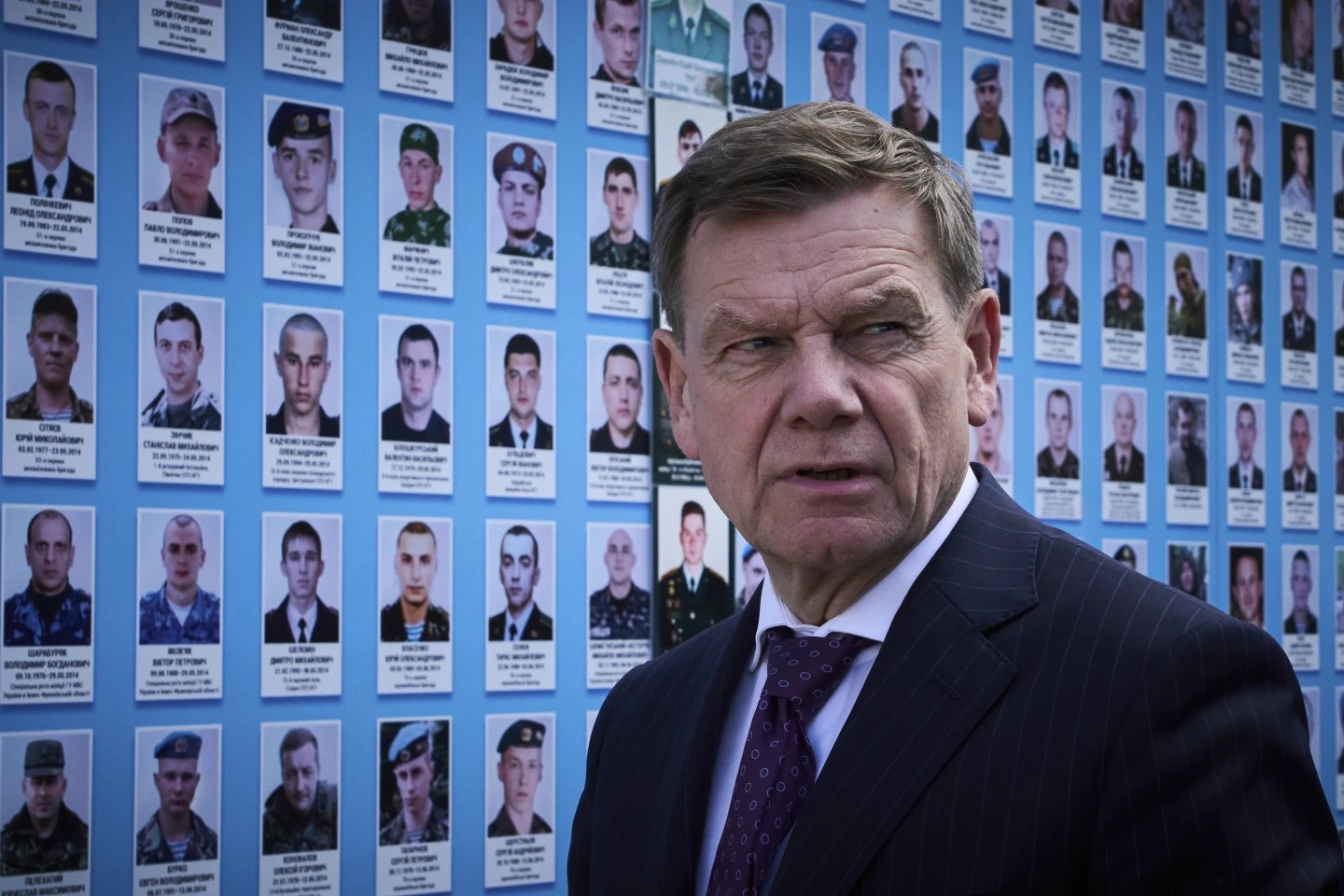Written by HANNA ARHIROVA
During the long, long months when Russian forces were in charge, the national flag was contraband. Only rarely and in the privacy of his own home did Yevhen Teliezhenko dare bring out his prized possession, the banned yellow-and-blue of Ukraine.
Now the Russians are gone, forced out of his southern city of Kherson, and the 73-year-old is making up for all that lost time. He and his wife are driving around the city, flying their flag and — with the enthusiasm of teenagers — asking Ukrainian soldiers who liberated them to autograph it.
“They were fighting for us. We knew we were not alone,” he said.
Where just last week there was deep fear in Kherson, now there is an abundance of joy.
And that emotion is bursting out despite the fact there is no power, no water and barely any cellphone coverage. Food and medicines are in short supply. Life promises to be tough for weeks to come, as winter bites down on barely heated residences. Russia’s poisoned parting gifts were the destruction of key infrastructure and the deadly seeding of booby traps around the city.
Still, at least hope and happiness are back, which will more than do for now.
“Finally freedom!” said 61-year-old Tetiana Hitina, Teliezhenko’s wife. “The city was dead.”
Kherson was the only provincial capital captured by Russia, seized in the invasion’s first weeks. It was a significant — but as it turned out only temporary — prize for Moscow, because of the city’s port and its strategic position on the Dnieper River in southern Ukraine.
The Dnieper’s wide waters now separate Ukraine’s troops, who fought their way for weeks toward Kherson, and its former Russian occupiers, who abandoned the city last week in the face of the Ukrainian advance, escaping to the river’s eastern bank.
Yet the fighting is far from over.
Russian troops are now digging in there, bracing for the next Ukrainian move. Over the sounds of Ukrainians rejoicing for a third day running Sunday in Kherson’s main square, the thump of artillery fire could be heard in the distance. About 70% of the wider Kherson region is still in Russian hands.
Roads leading into Kherson bear witness to the ferocity of the fighting — much of it largely unreported at the time because Ukraine had blacked out frontline news from the region to avoid giving useful intelligence to the Russians. For tens of kilometers (miles) on approach to the city, the war and its ravages have left not a building untouched.
Amid the abandoned trenches and the charred remains of military hardware, a surprising sight: children popped out of mutilated homes to wave at cars rolling through their village, which until only recently was a war zone.
Freed of their occupiers, residents of Kherson are now able to begin telling the grim stories of life under Moscow’s rule. Some spoke of Russian soldiers detaining people in the streets, seemingly arbitrarily, for checks and questioning — and sometimes worse.
Others worry about friends and acquaintances who were told to leave Kherson when Russian forces were beginning their weeks-long withdrawal. Tens of thousands of people were evacuated, ferried across the Dnieper and bused deeper into territory that Russia still holds.
In the final days before they finished their pullout last week, Russian troops grew increasingly nervous and rumors flew around the city, said Karina Zaikina, 24.
“They were stealing and morally pressuring us,” she said. “It was clear that they were scared because they all walked only in groups.”
“I woke up calm today,” she said. “For the first time in many months, I wasn’t scared to go to the city.”
In scenes reminiscent of European cities that Allied forces liberated in World War II, Kherson residents poured into the city’s central square, honked car horns, danced, wept and hugged. In one place, two people who were alleged to have collaborated with the Russians were tied to poles with their hands behind their backs.
For the moment, billboards that the city’s former Russian-backed administrators put up are still there. But surely, not for long.
Their now-outdated message reads: “Russia is here forever.”
Photo via AP Photo/Yevhenii Zavhorodnii.

